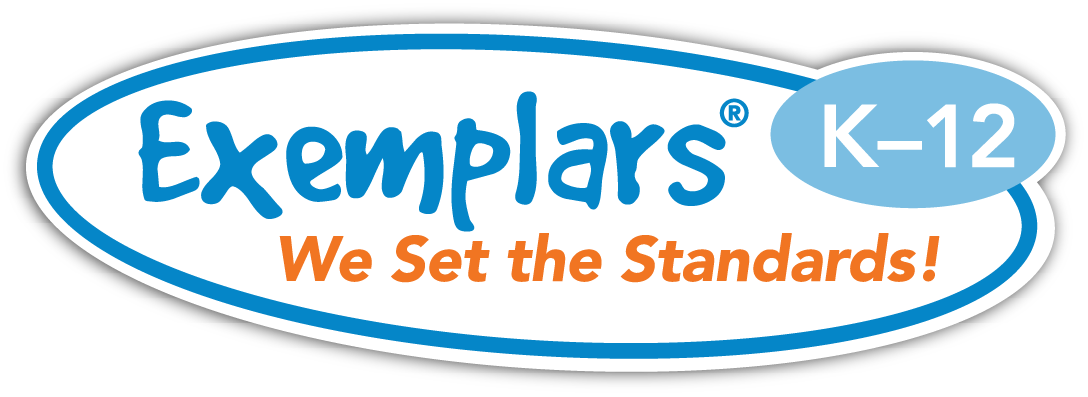Preparing our Kids for Success Beyond the Classroom
By: Ross Brewer, Ph.D., Exemplars President
 Once upon a time, Americans might have been content to live in a community much like Garrison Keillor’s Lake Wobegon, “where all the children are above average.” That’s because historically American kids, and our schools, were above average; however, for decades, America’s education system has been losing ground internationally. In an era when knowledge-based competition comes from every corner of the globe, average is no longer good enough for American students or workers. American jobs are becoming increasingly vulnerable as technology becomes more sophisticated and overseas workers better educated. Both of these are happening at an accelerated rate.
Once upon a time, Americans might have been content to live in a community much like Garrison Keillor’s Lake Wobegon, “where all the children are above average.” That’s because historically American kids, and our schools, were above average; however, for decades, America’s education system has been losing ground internationally. In an era when knowledge-based competition comes from every corner of the globe, average is no longer good enough for American students or workers. American jobs are becoming increasingly vulnerable as technology becomes more sophisticated and overseas workers better educated. Both of these are happening at an accelerated rate.
Because of the disruptive changes occurring in our knowledge-based economy, the good jobs—jobs that pay high wages—that will survive are those that require higher cognitive skills.
For years, economists and educational experts have been warning about the impact that the increasingly rapid development of technology is likely to have on unskilled workers. MIT professors Brynjolfsson and McAfee offer this stark summation of current technological trends:
Technological progress is going to leave behind some people, perhaps even a lot of people, as it races ahead. … there’s never been a better time to be a worker with special skills or the right education, because these people can use technology to create and capture value. However, there’s never been a worse time to be a worker with only ‘ordinary’ skills and abilities to offer, because computers, robots and other digital technologies are acquiring these skills and abilities at an extraordinary rate. (The Second Machine Age, p11)
Unfortunately, as the most recent international reports make clear, while American students have made incremental improvements on international tests of problem solving, the position of the United States continues to slip as other nations advance more rapidly.
One of the reasons for weak student performance on international tests has historically been the absence of consistently strong standards from state to state. In the past, many standards have lacked focus and coherence, giving prominence to simple skills that are easily measured while minimizing problem solving and communication skills employers identify as being important.
Why is problem solving so important? At a mathematical level, problem-solving skills are critical to the development of understanding more advanced mathematics and the ability to perform other complex tasks. This in turn creates the foundation to solve problems in the real world. Indeed, among the essential employee skills identified by employers are the ability to solve problems, process information, analyze quantitative data and to communicate verbally and in writing.
Thankfully, we are in the midst of a transformation whose aim is to close the global competitiveness gap and prepare our children for a global economy.
In recent years, many states have moved to address weaknesses in problem solving and the associated process skills. The Common Core State Standards (CCSS) is the most wide-ranging effort.
In addition to the Content Standards, the CCSS give at least equal importance to a set of process standards, the Standards for Mathematical Practice. These eight process standards describe ways in which students are expected to engage with the content. The process standards weave the other knowledge and skills together so that students may be successful problem solvers and use mathematics efficiently and effectively in daily life. They emphasize the problem solving, reasoning, analytical and communication skills and are given equal prominence at each grade level along with the Content Standards. Even states that are not participating in the CCSS are prioritizing process standards.
How Exemplars Supports Problem Solving
So how does Exemplars tackle the problem-solving imperative facing today’s teachers and students? We were founded more than 20 years ago with a single mission: to engage students’ interests and develop their abilities to problem-solve in today’s world. From the beginning, the focus of our mathematics material has been on the following process standards: problem solving, reasoning, communication, representation and connections. Exemplars tasks are designed to help teachers instruct students in mathematical problem solving and to allow students to demonstrate their understanding of problem solving.
Our latest K–5 material, Problem Solving for the Common Core, offers teachers a supplemental resource to help develop their students’ problem-solving and critical-thinking skills. Our real-world tasks, rubrics and anchor papers are designed to encourage:
- Students’ problem-solving abilities
- Students’ use of representations and making the link between the problem and the underlying mathematics
- Students’ ability to communicate mathematical thinking and provide reasoning and proof to justify their answer or approach
- Students’ application of appropriate mathematical language and notation
- Students’ self-assessment skills
- Formative assessments, which allow teachers to understand how their students are doing and to adjust their instruction to improve performance
- Engaging summative assessments, which allow teachers to evaluate if their students have met the standard
In short, problem solving is at the core of everything we create at Exemplars. You can try our new material with your students by signing up for a free 30-day trial or by downloading sample tasks. Let us know what you think.

